Lifestyle
PHOTOS: Professor Peller – The Enchanting Story of Nigeria’s Most Famous Magician and how he got Assassinated in 1997
Published
4 months agoon
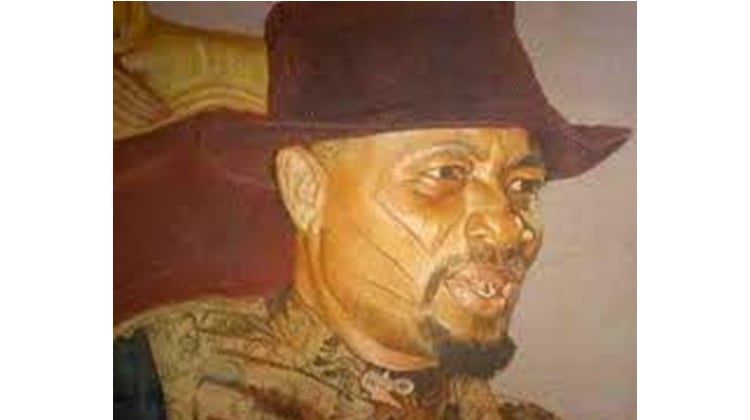
Professor Peller – The Enchanting Story of Nigeria’s Most Famous Magician and how he got Assassinated in 1997
It was one surreal day, around 4:00 pm or so, and I was out on our street for a reason I can’t really remember now, I was pretty young then. Then as I got to the maisuya end of our busy street, I noticed this huge and electrified crowd thronging after a slowly-moving convoy. At the center was a white limousine and from the sun roof, was a man full of charming smiles, waving to the frenzied crowd, he looked very smart, handsome and he was also wearing white, all white, the hat too was white.
It was quite a dazzling spectacle. The limo was headed towards the city stadium where he had a show. I had just set my eyes on Africa’s greatest magician, ‘Professor Peller’. And Abiyamo would never see him again. But for a young African child who was also seeing a limousine for the very first time or so, it was truly a magical moment for me. He performed and left my state leaving incredible tales of outstanding feats. Ladies and gentlemen, this is a piece on Nigeria’s most famous magician, Professor Peller. For about thirty years, Peller held the world’s most populous black nation spellbound with millions gasping at the whisk of his wand. I hope you find this magical.
BIRTH AND EARLY DAYS
He was born in 1941 at Iseyin, Oyo State and he was named Moshood Folorunsho Abiola. He would later pick on the stage name of ‘Professor Peller’, an appellation that has stuck to him like a second skin.
HIS MAGICAL PERFORMANCES AND EXPLOITS
When Professor Peller was alive, he was the most brilliant magician in all of Africa. I am not too sure if the record has been broken. Even in death, Peller remains the greatest of all. He performed not only before princes but also held kings spellbound with his magic. Here is how Femi Oyebode, a Professor of Psychiatry at the University of Birmingham described Peller and one of his shows in 1972 at the George V Stadium in Lagos (that is the old name of the Onikan Stadium):
My last ever visit to the stadium was to see Professor Peller, a magician, and said to be a member of the Magic Circle take on the last of our traditional magicians whose name now escapes me (itself a significant fact). Professor Peller was dressed in black tails, a top hat, a wand in one hand, black shoes and well-cut hair. He was a perfect picture of debonair gentleman and was assisted by an attractive young woman. He flicked his white handkerchief and a white dove flew out. He pulled at his cuff links and flowers bloomed under his command. He was confident, majestic. He was suave and graceful. He levitated his assistant.
He cut her in two without drawing blood. He locked her in a cupboard, chained up several times over yet she disappeared! It was a masterly performance. The crowd clapped, hooped. We were seduced against our better judgment. We wished desperately that the traditional magician would enthrall and endear us to his magic, the mysteries of African magic. We were disappointed or shall I say that I was disappointed. When he came on stage dressed only in a loincloth of indeterminate color, you could hear the audience gasp aloud.
Was this African magic?
This crude, little thin man who seemed recently woken from the dead? He swallowed a stone and turned his backside to us, slipping his loincloth to one side and excreted the stone. Awfulness and shame. He submitted his abdomen to a sharp sword to be sliced open. But by now, the absence of razzmatazz and of finesse had turned us against him. The crowd poured through the gates. That was how disgusted we were. You can say that at George V stadium, in early adulthood I lost two of my childhood dreams.
A master at his craft and a consummate entertainer, he cast a most powerful spell on the following African leaders, right in their presidential palaces:
-The late President Gnassingbe Eyadema of Togo (Eyadema later died after spending 38 years in power, he was the longest-serving ruler in Africa when he died in 2005 (see his picture below). His son, Faure, is currently the President of Togo).
-The late President Samuel Kanyon Doe of Liberia (see picture below). There is an interesting story behind his performance for the late strongman of Monrovia. There was a time Peller had a performance in Liberia in the 1970s and the crowd was just too massive. The Liberian government drafted security forces to the venue of the act to control the surging crowd. One of those responsible for maintaining security that day at Peller’s performance was a young man called Samuel Doe. So when Doe became President, he summoned Peller, Nigeria’s finest magician to come perform for him. Such was the stellar performance of Peller. Doe said he was busy controlling the surging crowd and he could not witness the even properly as at that time when he was a junior soldier.
The former President of Benin Republic, Mathieu Kerekou was also one of those who patronized Peller
Apart from the Presidents mentioned above, Peller also reigned supreme in Nigeria. It was like there was no other conjurer in the land. Chief Obafemi Awolowo, the late Premier of the Western Region was one of those he used to entertain regularly.
-Peller was a prolific magician with many shows, some of which were the Invisible General, the Escaping Box, Changing Dresses and the Zigzag. One thing with Peller’s performances is that they were executed with maximum finesse and excellence. He was thorough and professional. Perhaps, if not for death, he might have even eclipsed David Copperfield of the USA in fame. Copperfield is presently the greatest magician on earth and the first person to make one billion dollars from magic.
-While growing up, he was nicknamed Moshood Olori Pupa (Moshood the Red-Headed Boy).
-One of his classical performances included putting his wife in a ‘magical coffin’ and severing the same coffin into two halves with a ‘magic coffin’.
When Peller was performing, there was really no Internet as we have it today, so it was quite easy to fool people in their millions. Now, YouTube is
spoiling the show for many magicians except the most ingenious of them. Here are few more magic clips on YouTube just to let you know they do not conjure any evil spirit or demon, it is nothing but sheer trickery.
LOVE, ROMANCE AND MARRIAGE
He was described as a very romantic man. His most prominent wife, Alhaja Silifat, fell in love with him while she was still in the secondary school. She confessed that she had always admired him and his performances even before then and each time she watched him perform, her heart fluttered with affection for the fine magician with tribal marks.
In 1967, Iseyin Grammar School in Oyo State became the place where Peller planted the seed of love even if he was there to perform but was carried away by the ravishing young beauty in the crowd called Silifat. Hear her: “I am sure he musthave been attracted to me because of my beauty. So, he just whispered to me: ‘Baby, you are beautiful.’ And I said, ‘Thank you.’ He didn’t ask me out that day. For quite a long time, we were friends.” For a couple of years more, they continued dating and Lady Peller said after two years, she said yes to his advances. They got married in 1971 and they already had a child by then.
For a man who was a showstopper at any events, it is no surprise that not a few women fell for the enchanting spell of Nigeria’s most famous magician. He was a man of many women and married many of them. However, the best known of these ladies, with whom he performed his magic tricks is Alhaja Silifat Adeboyin Peller (see picture). The whole of Nigeria knew her as Lady Peller and she is most famous for the act in which she was ‘sliced’ into pieces by Peller and had a hard time putting her back. Now 66 years of age with her husband gone and not remarrying, she is tending to her grandchildren while reminiscing over the glittering wonders of an empire of magic that once held sway. Lady Peller was born in Kishi, Oyo State where her father was the Chief Imam and had five children for him, while also raising many other step-children.
However, unknown to many, their rosy marriage later had a deep crack to the extent that they were not staying together anymore. When Peller was killed at his Onipanu residence, he was in Lagos State for a function while Lady Peller was living at the GRA, Ikeja. Although they were not officially separated as they still saw regularly, Peller checked on her in Ikeja but met her absence. As at that time, they had already reconciled and were even planning on coming back together before Peller was prematurely silenced by the assassin’s bullets.
Peller left a message for her to check on him as he was not feeling well and was rushed to Ibadan for treatment. Lady Peller was furious as to why he was taken to Ibadan since they had family doctors at the Ajayi Memorial Hospital and the EKO Hospital in Lagos but upon getting to Ibadan, she was simply told that Peller was dead. She fainted immediately only to wake up to a bucket of water and intense fanning by family members. She said: “It was a great shock and I had never seen that kind of things. I don’t ever wish to go through that kind of thing again.” While he was alive, he also taught her some magic and ensured she got some training in Michigan, USA. Little wonder they always performed together and as far as she is concerned, her religion is not against the brand of magic she performed with her late husband because according to her, ‘it was not fetish’. She still remembers the very good old days and says she will not remarry and will still marry him over and over again, rounding off: They only want to enjoy what Professor Peller was enjoying for several years. But they can’t have it.”
Alhaja Silifat Abiola Peller, the wife of late magician, Professor Peller, has opened up on why the popular socialite was killed.
While speaking in an interview with BBC News Yoruba, Mrs Peller revealed that the assassination of her husband was made possible because of the personal information he leaked to the media after a performance she had with her husband that got everyone scared.
She said during the performance, the late magician sliced her into two on stage but found it difficult to restore her back to normal.
“On that unforgettable day, Professor Peller performed at the National Theatre. He sliced Lady Peller into two but found it difficult to restore her back to normal,” she said.
“He did his best to the point of sweating which was noticed by the spectators. The show ended at that point.
“Thanks to God, Lady Peller later came back to life. But people were yet to know until the following day.
“While Professor Peller was performing (the following day), the spectators were not all that interested. All they wanted to see was Lady Peller.
“As soon as they saw me, they were excited to the point that some of them called it a day, saying my appearance was entertaining enough.”
Silifat said presidents and prominent people used to come to the shows which they performed across the world.
On how she heard of her husband’s death, she said she was in Lagos when she got the information.
“It was an unfortunate day which I can’t really explain. Some said I fainted and later got revive after water was poured on me,” she said.
On how her husband died, Silifat said “He was observing the Sujud prayer when he died.”
She continued, “The media knows how to ask questions that can make one say things he ought not to say.
“Professor Peller was asked by the media to reveal the particular time he could be found without his powers.
“He told them that he could only be found without his powers when he’s observing the Islamic prayers.
“That’s what Professor Peller said that led to his fall.”
Silifat said the assassins who killed the magician ensured they carried out the act at the time he was observing prayers.
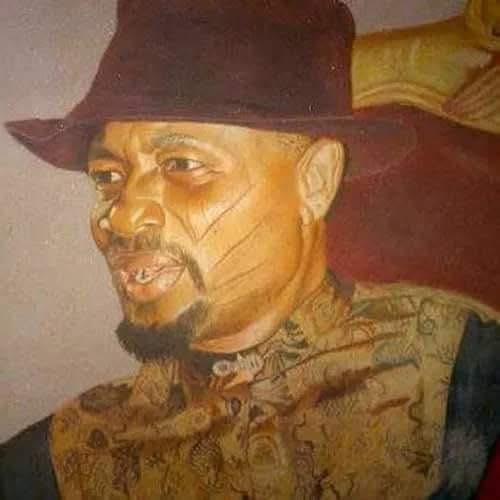

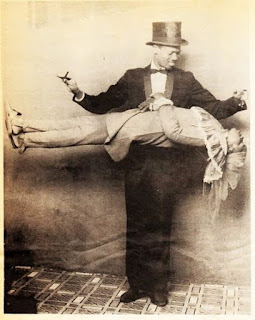
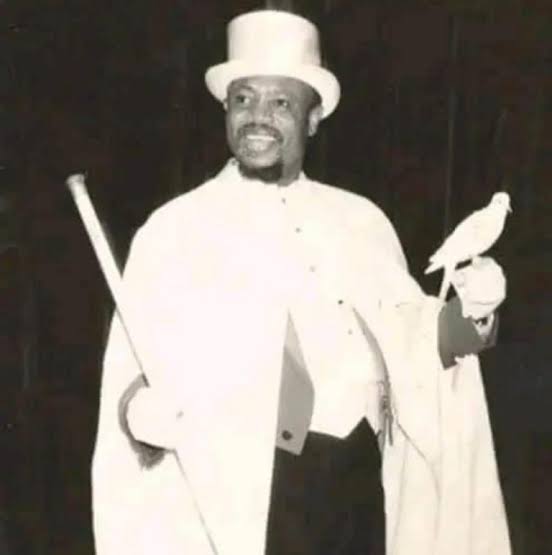
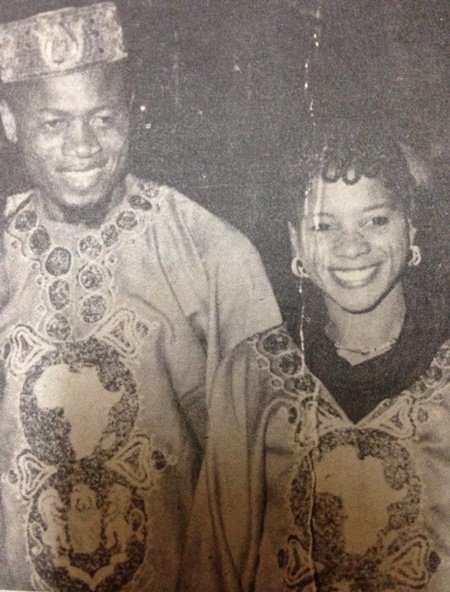
FOLLOW US ON:
You may like
Lifestyle
PHOTOS: Meet Prince Abimbola Onabanjo Of Ijebu Land(the New Awujale Of Ijebu Land Elect)
Published
2 days agoon
January 9, 2026
I have heard that one of the strong ọmọ ọba who may likely clinch the highly exalted stool of the next Awujale of Ijebu Land, according to some reports, is Prince Abimbola Onabanjo.
Prince Abimbola Onabanjo hails from the royal family of Fusengbuwa in Ijebu-Ode. He is a 2007 graduate of Banking and Finance from Lagos State University (LASU) and has undergone several Graduate Business Executive trainings at prestigious institutions, including Harvard Business School, Columbia Business School, and The Wharton School, University of Pennsylvania.
Popularly known as Prince Abimbola among friends in Ijebu and Lagos, he is a young businessman with close to 20 years of experience. He is the Chief Executive Officer (CEO) of Kleensteps Holdings, Extol Securities, and KMF Oils and Gas Limited.
Beyond his business accomplishments, he is also a philanthropist who has contributed immensely to several charitable projects across Ijebu Land in recent years. Few years ago, he reportedly committed 25m naira to 25 schools across Ijebu Ode as part of his vision for long term development of the land.
The young Prince had also in the past support the rehabilitation of road projects in Ijebu including the Balogun Court, Ojusgagbola Avenue, Abusalawu Street, and sections of Osipitan road. And there are many community projects like this, done from time to time.
Well, as the selection and ascension process is currently ongoing, I pray that the family heads, in choosing among the eligible princes, will do the needful.
A few weeks ago, I wrote about another prince, Dr. Adekunle Hassan, a 75-year-old ophthalmologist.
Many reactions suggested that people would prefer the next Awujale to be young rather than elderly. Whatever the reasons may be, I hope this charming Prince Abimbola satisfies that wish 😊.
My foremost concern is fairness in the process and that only the legitimate and rightful ruling house as recognised in the Gazette should be allowed to produce the next king, and not ganusi from any corner. This is how we properly protect our heritage for posterity.
As a people, we must learn to wait for our turn.
I also hope that whoever emerges as the next Awujale will be blessed with wisdom, knowledge, and deep understanding of the sacred role of a traditional ruler in Yorubaland, as one who will be seen as a father to all, without prejudice to social class, religion, or age.
And one who will rule with wisdom and peace, and bring meaningful development to the land through the support of sons and daughters of Ijebu, as well as through strong networks in society.
May the best prince emerge.


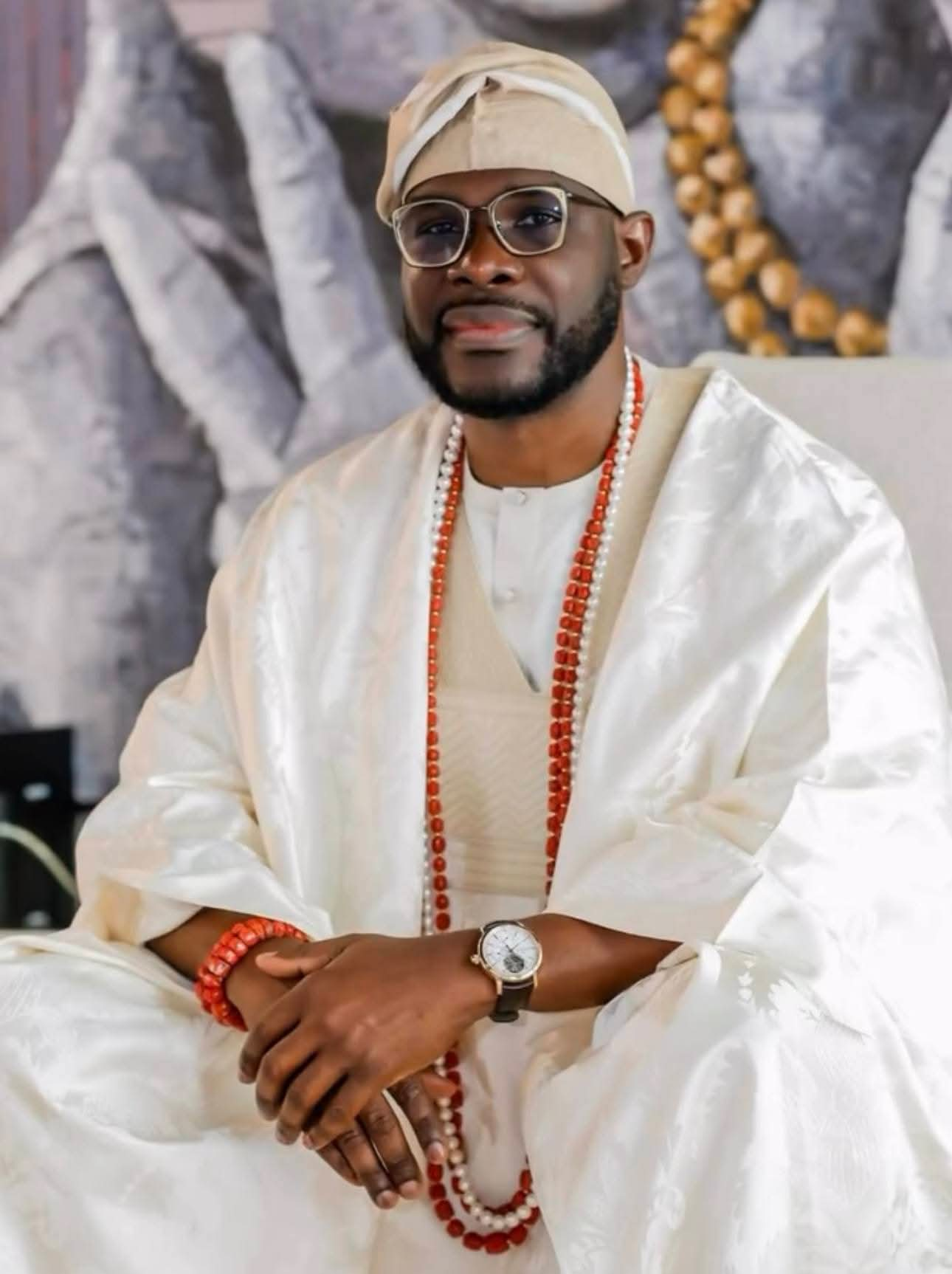


FOLLOW US ON:
Lifestyle
PHOTOS: Nollywood Actress Allwell Ademola was finally la!d to rest in Lagos
Published
2 days agoon
January 9, 2026
Nollywood actress and film producer Allwell Ademola was laid to rest on Friday at Atan Cemetery, Yaba, Lagos State.
It was reported that the actress died on December 27, 2025, at the age of 49.
Colleagues from the film industry, including Afeez Abiodun, Rotimi Salami, Kunle Afod, and Abiola Adebayo, among others, attended the burial to pay their last respects to the actress, who was widely known for her role as “Mama Kate” in the 2018 film “Ile Wa.”
In viral videos seen by this newspaper, the actors who attended the final rites were visibly emotional, breaking down in tears as they poured sand on Ms Ademola’s coffin, which had already been lowered into the grave.
During a brief sermon at the cemetery, the pastor who officiated the burial urged attendees to reflect on their lives while they still had the opportunity.
Reminder
He said the burial served as a reminder that everyone would one day face the same end.
He added that the moment should prompt deep reflection on how one’s life journey would conclude, particularly for those harbouring malice or engaging in wrongdoing.
The pastor said, “Then you will discover that nobody has time. The will of God is that this should help us mend our ways before our Maker. He said the righteous will always consider this in their hearts. What are we going to do with this? She has lived her life. She has run the race and has gone to meet her maker, but what we are doing here is for you and me. As for her, she is rejoicing in the bosom of Abraham.
“How will you end your journey? That malice, wickedness, “I will not agree” — who knows what is next? That is the million-dollar question before us today. Because in the next few days, nature has a way of putting forgetfulness in things. But will you remember that one day it will be my turn, just as it is her turn today? What God expects of us when we see things like this is to look up to God and say, ‘Father, help me to make the best of the time that is left.’”
Candlelight procession and service of songs
At the candlelight procession and service of songs, actors gathered to offer special prayers in memory of their late colleague.
The event, which took place on Thursday, was attended by prominent figures in the industry, including Odunlade Adekola, Saheed Balogun, Bolaji Amusan, Iyabo Ojo, Fausat Balogun, Eniola Ajao and Fathia Balogun. Many attendees wore customised white T-shirts bearing Ademola’s portrait as a mark of tribute.
In an emotional moment captured on video, Salami, widely regarded as one of Ms Ademola’s closest friends in the industry, delivered a heartfelt tribute.
Fighting back tears, he asked for forgiveness on behalf of the late actress.
“If there’s anyone Allwell has offended, directly or indirectly, please, forgive her and keep praying for her. I think the only thing we can actually do is find a way, in unity, to keep her legacy. Even if she’s gone, let all that she has done stay with us and be with us.”
Salami also announced that he would offer one day of free work to anyone who approached him for a film project.
Apology from Allwell’s brother
Meanwhile, one of the late actress’s brothers issued an apology to actress Ojo over remarks he had made following his sister’s death.
He offered the apology during the service of songs held in her honour. Previously, a video that went viral showed him criticising some of her colleagues for their public tributes at the time of her passing.
In the video, he said, “All the ‘Rest in Peace’ messages and public displays of love are fake and hypocritical. Where was this love when she was alive? When she produced Eniobanke, none of you promoted it. You all claimed to be friends, yet you never supported her work or career, even though she supported many of you. During the Jagun Jagun production, no one called her or offered her a role.”
“Some of you, the likes of Lateef Adedimeji, Owonikoko, Iyabo Ojo and others, came to our house to shoot movies, yet you never found it worthy to stand by her. If you couldn’t support her while she was alive, don’t perform loyalty now that she is gone.”
However, Ojo, a mother of two, responded publicly to the claims, affirming that she had supported the late actress during her lifetime.
She wrote, “I oversupported your sister when she was alive, when she was building her career as a Producer and director, I featured in her movies countless times for free, and I also supported her financially and emotionally. May her beautiful soul continue to rest in perfect peace,” she said.
While apologising, he said, “Please ma, don’t be offended. I did not mean to abuse you; I was not referring to you at all.”

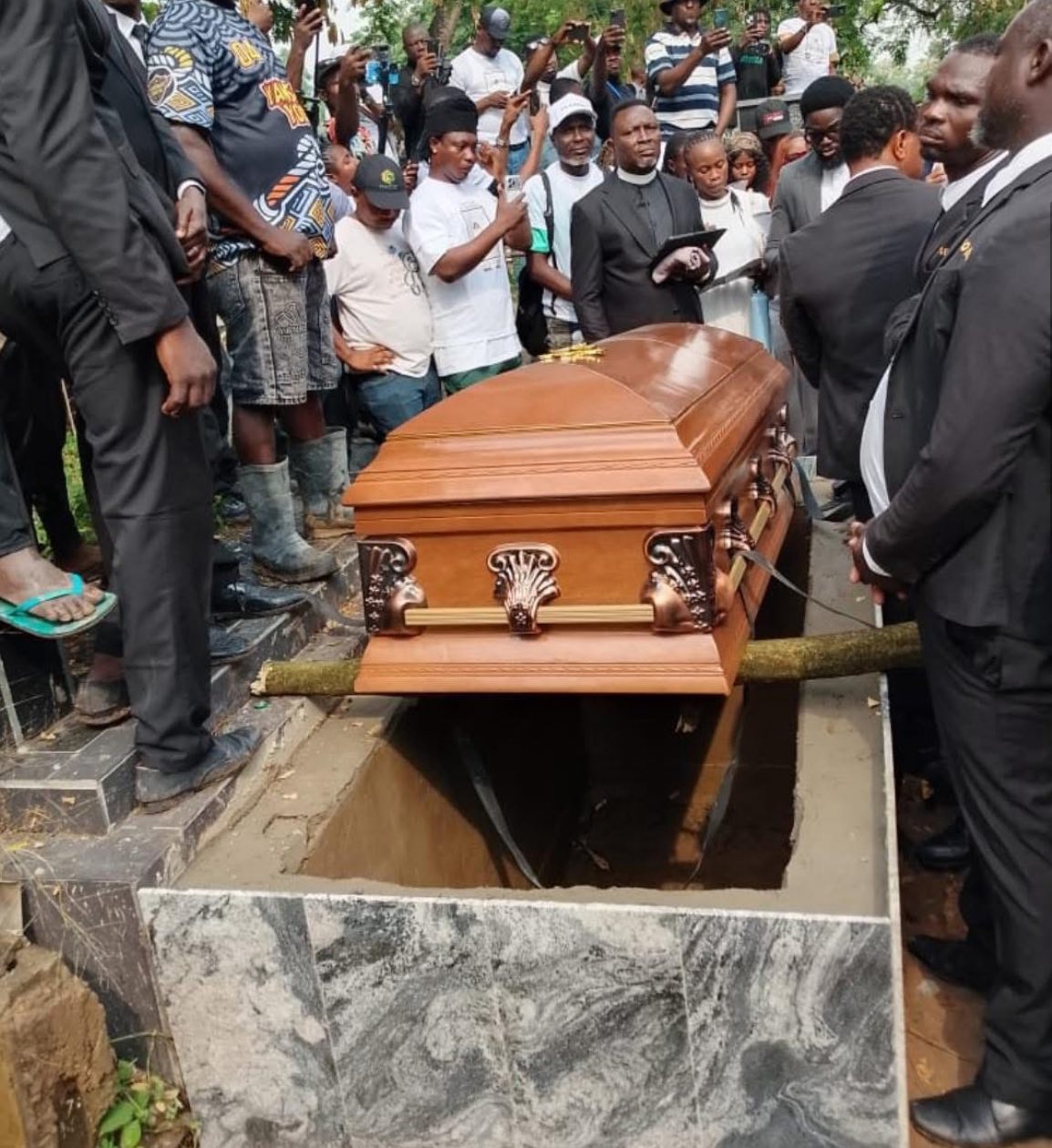
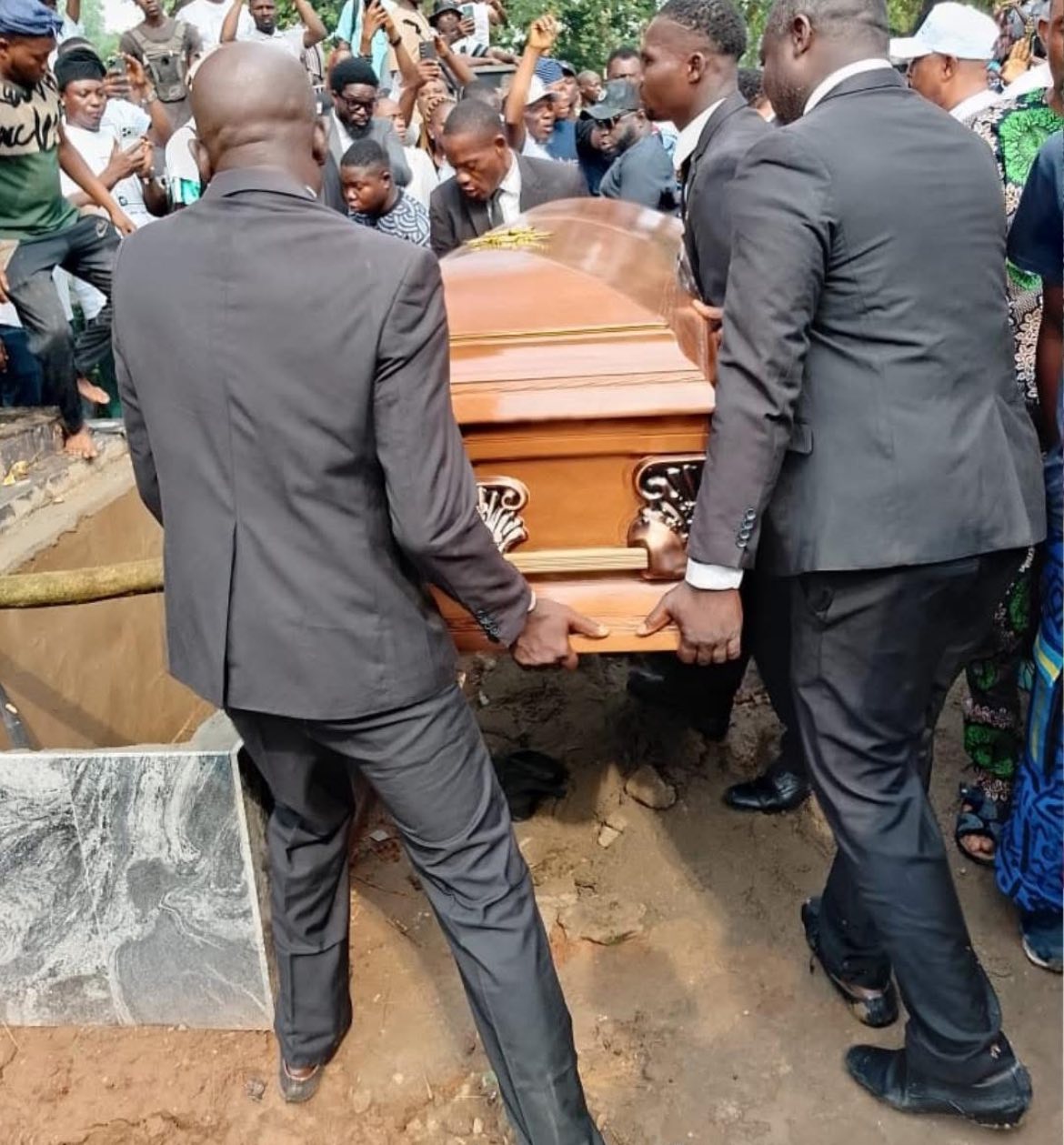





FOLLOW US ON:

One major issue that caught the attention of Nigerian writers, historians, journalists and linguists amongst others in January 2020, was the adoption of 29 Nigerian coinages and words from, especially Yoruba and Hausa languages, into the Oxford English Dictionary. Words and colloquial, such as danfo, okada, buka, k-leg, to eat money, next tomorrow, chop-chop, gist, sef and 20 others were officially accepted for everyday use as part of the English language.
There was widespread ecstasy generally amongst many Nigerians – both the lettered and the unschooled masses were united in their celebration of this recognition, especially coming from our former colonial masters – because the British that gave us a lingua franca, now were accepting our own languages, our own native words to be part of English language, after several of us were caned by British-tutored Nigerian teachers for speaking “vernacular” in primary schools in those days. You will agree with me that the joy is not unfounded. Filipinos perhaps, felt a similar joy in 2015 when 40 Filipino-coined words and slangs were also added to the Oxford English Dictionary.
Is it also not victory at last, even if in part, for Afrocentric scholars and writers who are foremost critics of the prejudiced nexus between language and power? Several of them have argued vehemently and vowed not to italicise coinages and words from their native languages in their critiques and creative writings. Although they have continued to write in the borrowed languages of French, English and Portuguese. This pseudo victory at least reinforces their stance, showcasing fruits from their activism.
This opening digression was inescapable for me from the dreadful topic of this write-up: Why Yoruba language may become extinct! This is because the Oxford English Dictionary’s action finally forced me to sit down and write this essay that has been pleading for my attention for several months now. Anyway, back to the issue. I could have generalised the topic by saying that several Nigerian languages may become extinct if we don’t make purposeful efforts to halt their adulteration, abuse, disuse and sometimes disdain by their native speakers. Yoruba language in this instance is a euphemism for conquered languages of the world, not just Nigerian or African. It represents languages, whose native speakers are the proletariats in the world order. From prehistoric times to modern days, power relations have always defined human relations; language has remained one of the major instruments of conquest. This is one disorder that the world has not been able to re-order and that may remain with humanity for centuries to come.
Now, you may say Yoruba language is not one of the languages listed as critically endangered by the United Nations Educational, Scientific, and Cultural Organisation. Then, it means that you are not getting the point. The viewpoint I am expressing here is that the visible or invincible power of a person or a group of persons over others, determines the norm for all and what is acceptable as public interest, including the language that would be internationally used for socio-political and economic interactions, irrespective of interest of the peripheral groups in their mother tongues or any other issue.
Let’s go memory lane for clarity. Are you aware that the English language is not even native to the English people or the earliest inhabitants of the place known as Britain today? This may shock a number of people except scholars grounded in the history of English language. According to historians, the people of modern day Britain spoke what is known as Celtic language, which itself is a mixture of Indo-European languages. English language as known today to Her Majesty – the Queen, her subjects and ourselves – the emancipated natives of her former colonies, was introduced by “Germanic tribes” said to have invaded Britain sometimes in the 5th century. Although a small populace in the United Kingdom still speak Scottish and Irish languages, which are parts of the Celtic languages, English, the language of the invaders, has remained the flagship of the United Kingdom’s languages. The name England itself has its root from the Germanic tribes.
To further drive home the point that power relations determine accepted language and determine “who gets what, when and how”, as attributed to the political scientist, Harold Lasswell, let me also remind political historians that French was the official language of England for almost 300 years, from mid-11th century to mid-14th century. This was also imposed on England by the invading Normans and French army that defeated the then King Harold II of England, and thereafter forced the people to speak French for official interactions for three centuries.
That Bishop Ajayi Crowther interpreted the English bible into Yoruba language. That J. F. Odunjo’s popular “Iselogunise” Yoruba poem has remained evergreen and known across the globe? That Hubert Ogunde, Moses Olaiya, Idowu Philip, Kola Ogunmola and lot of others promoted Yoruba language through theatre and drama. That even Brazil in faraway South America recognises Yoruba language as one of its official languages. That the Yoruba language has also remained a major language in Nigeria, and it is being used in the Republic du Benin, Togo and even amongst infinitesimal populations of Yoruba people across the globe, may not prevent its extinction!
Recall we are using the Yoruba language as a euphemism for languages not directing world order, and therefore not considered as world power in this discourse. The point is art, literature and public outcries would not save any language from extinction, except its speakers are recognised for their economic power, military prowess, massive scientific innovation, giant strides in Information, Technology and Communication, medical contributions to well-being and wellness of humanity. Such languages may eventually give way.
That is why a German professor, who is very fluent in English language, may come to Nigeria and deliver his speech in German, and except that Nigerians and everyone else follow his/her discourse via the headphone translation devices. And our first class traditional rulers, right on their thrones, would talk to outsiders in English language, rather than also get interpreters to translate their discourse in English, while they speak their native language. That is why akara is known as beans cake amongst non-Yoruba people and not by its Yoruba known name, akara; and pizza is pizza worldwide. That is why our kids would want to learn Spanish, French and in recent times, Mandarin, in addition to English language to increase their access to global opportunities; and be unbothered if they are only able to speak diluted Yoruba language. They may even be less concerned with reading or writing their native language.
The English language itself has survived and continued on its victory lap over the Chinese Mandarin language spoken by 1.3 billion people, because of its continual adoption and adaptation of words and slangs from other languages that are gaining mileages and may compete with it. The adoption of the Nigerian colloquial and words into the English language is therefore not a victory for the Nigerian languages, but the use of linguistic assimilation method by powerful owners of English language to make it remain the language of today, tomorrow and next tomorrow. Records show that the English language has borrowed from about 250 other languages across the globe.
According to UNESCO, over 2,500 languages are vulnerable or already endangered in various degrees, some definitely, others critically. While the Yoruba and a number of other major languages in the underdeveloped countries may not be under serious threat now, their extinction will still come, even if it takes centuries, unless their owners and speakers start making impact in world affairs collectively as a people to the point that they also become dominant stakeholders in the world affairs, vis-à-vis, the world order.
FOLLOW US ON:

PHOTOS & VIDEO: Fire razes part of Ogun free trade zone, Igbesa

Demolition notice: Ogun communities cry out, call for Gov Abiodun’s intervention

Full List Of Countries Nigerians Travel To Without Visa

‘Sleeping Prince’ of Saudi Arabia dies after 20 years in coma

How A Class Of 24 Students Produced 2 Presidents, 4 Governors, 2 Ministers, 4 Emirs, 3 Justices, 4 Ambassadors and Other Influential Leaders

Why Do You Continue To Lie Against Your Motherland? Presidency Calls Out Kemi Badenoch
Trending
-

 News5 hours ago
News5 hours agoSERAP Sues INEC Over Alleged ₦55.9 Billion Election Funds Diversion
-

 Politics5 hours ago
Politics5 hours agoKano Gov Meets Tinubu In France After Secret Meeting With Kwankwaso
-

 News5 hours ago
News5 hours agoPHOTOS & VIDEO: Ekpoma Youths In Edo Attack Fulani Settlements Over Kidnappings
-

 News5 hours ago
News5 hours agoUS Urges Citizens To Leave Venezuela Warns Armed Militias Have Set Up Roadblocks
-

 News4 hours ago
News4 hours agoFull List Of Countries Nigerians Travel To Without Visa
-

 Crime5 hours ago
Crime5 hours agoPHOTOS: NDLEA Nabs 80-Year-Old Drug Lord Again, Intercepts Tramadol-Laced Mannequins
-

 Politics4 hours ago
Politics4 hours agoWhy Buhari Appointed Me As Minister – Lai Mohammed
-

 News3 hours ago
News3 hours agoPHOTOS & VIDEO: Fire razes part of Ogun free trade zone, Igbesa



















